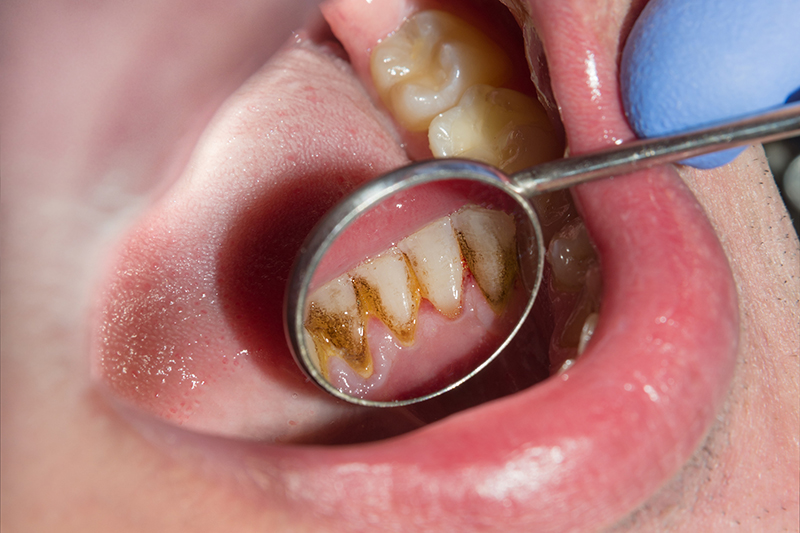Oral Cancer Exam In Calgary, AB
Approximately 30,000 cases of oral cancer are diagnosed in the United States every year, according to the American Cancer Society. Over 7,000 of these cases are estimated to have resulted in the patient’s death as a result of the illness. It is easy to detect oral cancer in its early stages with an annual oral cancer examination, and if detected early, it can be successfully treated with the right treatment.
There is no doubt that oral cancer is a pathologic process that begins with an asymptomatic stage, in which typical cancer symptoms are not readily apparent. This is the reason why dentists are extremely important in performing oral cancer examinations.

There are a variety of histologic types of oral cancer, including teratoma, adenocarcinoma, and melanoma. The most common type of oral cancer is malignant squamous cell carcinoma. Typically, this type of oral cancer originates in the lips and mouth.
This is one of the most common places in the oral cavity and maxillofacial region where oral cancer occurs. Some of the places where oral cancer frequently occurs are as follows:
- In the lips
- The gums
- In the face
- In the mouth
- In the tongue
- Glands of the Salivary Tract
- The oropharyngeal region (throat)
Oral cancer examinations are conducted for a variety of reasons:
Around 75 percent of oral cancers can be linked to modifiable behaviors such as excessive consumption of alcohol, smoking or using tobacco, which are important factors in the development of oral cancers. In order to make lifestyle changes and stop smoking, your dentist will be able to provide literature and education on how to do so.
It is generally very effective to treat oral cancer in its earliest stages if it is detected in its earliest stage. In the event that any abnormalities are noticed in the tongue, gums, mouth, or surrounding area, it is strongly recommended to seek medical attention as soon as possible. There are many signs of pathologic changes that may indicate the presence of oral cancer during the process of examining the maxillofacial and oral regions carefully by the dentist and dental hygienist.
In the course of a routine oral cancer screening, the following signs will be investigated:
- Lumps – The presence of soreness, lumps, or thickening of tissue anywhere in the throat or mouth can indicate a pathological condition.
- Red patches and sores – There can be a variety of symptoms associated with pathologic (cancerous) changes in the mouth, such as red patches on the floor, front, and sides of the tongue, not healing white or pink patches, and slow healing sores that bleed easily.
- Leukoplakias – They are hardened, white or gray, slightly raised lesions from inside the mouth that are usually present anywhere inside the body. There is a possibility that a leukoplakia may be cancerous, or it may become cancerous if it is not treated.
Oral cancer exams, diagnosis and treatment
The oral cancer examination is a completely painless process. During the visual part of the examination, the dentist will look for abnormalities and feel the face, glands and neck for unusual bumps. Lasers that can highlight pathologic changes are also a wonderful tool for oral cancer checks. The laser can “look” below the surface for abnormal signs and lesions that would be invisible to the naked eye.
If abnormalities, lesions, leukoplakia or lumps are apparent, the dentist will implement a diagnostic impression and treatment plan. In the event that the initial treatment plan is ineffective, a biopsy of the area will be performed. The biopsy includes a clinical evaluation which will identify the precise stage and grade of the oral lesion.
In oral cancer, the basement membrane of the epithelium has to be broken in order for there to be cancer present. A malignant type of cancer that occurs in the oral cavity or maxillofacial region is prone to spreading to other sites, posing an additional secondary threat to that part of the body. The treatment methods for prostate cancer vary based on the diagnosis, but may include excision, radiotherapy, and chemotherapy, depending on the severity of the tumor.
There is a dedicated screening for oral cancer that should be performed at least once a year during your biannual dental check-up. The dentist and hygienist will thoroughly inspect your mouth for any changes or lesions, but a more comprehensive screening should be performed twice a year.
Please ask your dentist or dental hygienist if you have any questions regarding oral cancer.